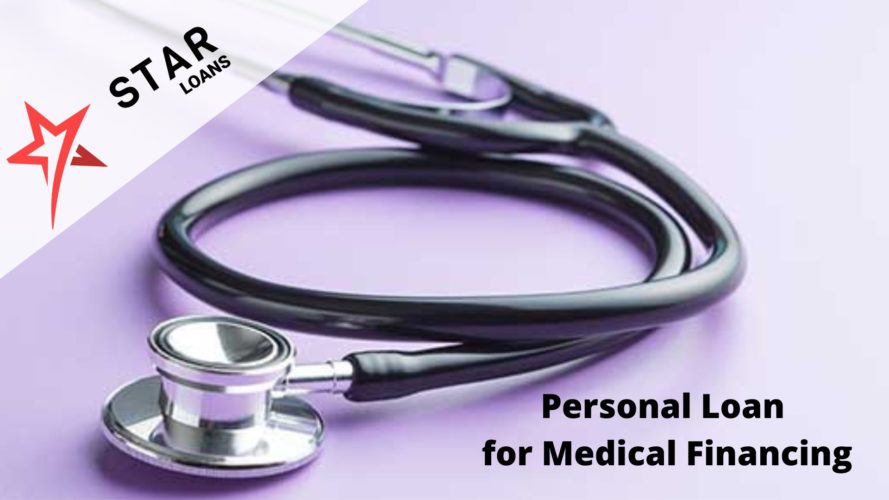
Whether you need an elective surgery or treatment for a medical emergency, apply online for a bad credit personal loan to get instant financing.
Table of Contents
What are personal loans for medical financing?
The medical billing system is complex. Sometimes it can be hard to figure out how much you’ll have to pay to get the treatment you need. Whether you need an elective surgery or treatment for a medical emergency, paying for an expensive procedure can be tough. According to research, patient medical costs – including deductibles and out-of-pocket maximum payments have gone up almost 30% in recent years. Therefore, you could still get a bill for hundreds, or even thousands, of dollars you weren’t expecting or can’t afford, even though you have insurance.
In matters of health, you should not compromise, you deserve proper care.
Whether you’re financing a surgery that insurance simply won’t cover, or you’re having debt troubles due to unexpected expenses or a high deductible, you can use a personal loan to cover your medical expenses such as treatments, prescriptions, procedures, and more. Personal loans for medical financing can provide you with maximum flexibility: you’re free to spend the money on anything from a long-awaited cosmetic surgery to long-standing medical debt repayment.
Types of medical loans
Medical loans can be divided into two categories: unsecured or secured against an asset. An unsecured medical loan means that a fixed amount is borrowed over a set term and is paid off in monthly installments, plus interest.
A secured medical loan is a loan secured by property, usually a home. For this reason, secured loans are only available to homeowners. Secured loans often allow you to borrow larger amounts, however the lender can use the asset to cover the cost of the loan if the borrower is unable to repay their debt.
It is important to keep in mind that your home may be repossessed if you fail to keep up repayments on a mortgage or any other debt secured on it.
How to get a medical loan?
It is easy enough to apply for a medical loan. In the case of a positive decision, the money will be deposited in your account in one lump sum. After that, you just need to make regular monthly payments according to the rates and terms you’ve selected. You will need the following information to apply:
- Full Name
- Address information
- Social security number
- Your income information
- Your employment status
Where to find medical loans
There are a number of online lenders offering personal loans for medical procedures, some banks and credit unions also offer them.
Many healthcare providers also provide medical loans. You are more likely to find these at a doctor’s office that offers expensive procedures, such as cosmetic dentistry or plastic surgery. Doctors in these cases know that patients are more likely to pay these bills out of their own resources, so they often offer more financing options than your average family physician.
How you can use a medical loan
Medical loans are suitable for a whole range of medical procedures. You can apply for a medical loan to cover any medical treatment. Common uses include:
- Planned or emergency healthcare expenses not covered by insurance
- High insurance deductibles attached to healthcare expenses
- Out-of-network doctor’s visits
- Cosmetic surgery
- Plastic surgery
- Dental bills
- Medical debt consolidation
Medical Personal Loans with bad credit – is it possible?
To qualify for a medical loan, it’s important to you do need a good credit score. That’s because personal loans for medical bills are unsecured loans, which means they’re not dependent on collateral, like a house. So lenders are at greater risk and therefore have stricter requirements for approval.
What are the advantages of a medical loan?
Health care costs, as well as medical debt, tend to increase rapidly in numbers. In addition, they can discourage you from getting the help you need. Personal loans for medical financing allow you to pay for what you need now and repay the loan over time. This will allow you not to worry and to focus on the main thing – your health.
What happens if you don’t pay medical bills?
Not paying your medical debt can quickly snowball and have significant, long-term consequences on your financial health. In some cases, providers may add hefty late fees and interest to your bills. After a period of time, typically 90 days or more, your health care provider will send them to a collection agency, which can lead to negative credit reporting. If you fail to pay your debt, debt collectors have the right to sue you, place a levy on your bank account or a lien on your property, which will freeze your account. After that, the creditor can withdraw money from your account without your permission, until you have paid off your debt.
Remember, many providers will be happy to work with you to create a payment plan.
Sometimes, in order to avoid the difficult circumstances listed above, one phone call is enough.
Do medical loans have interest?
Medical loan interest rates typically range from 4.99% to 35.99%. As a comparison, the average two-year personal loan rate in August 2020 was 9.34% APR, according to the Federal Reserve.